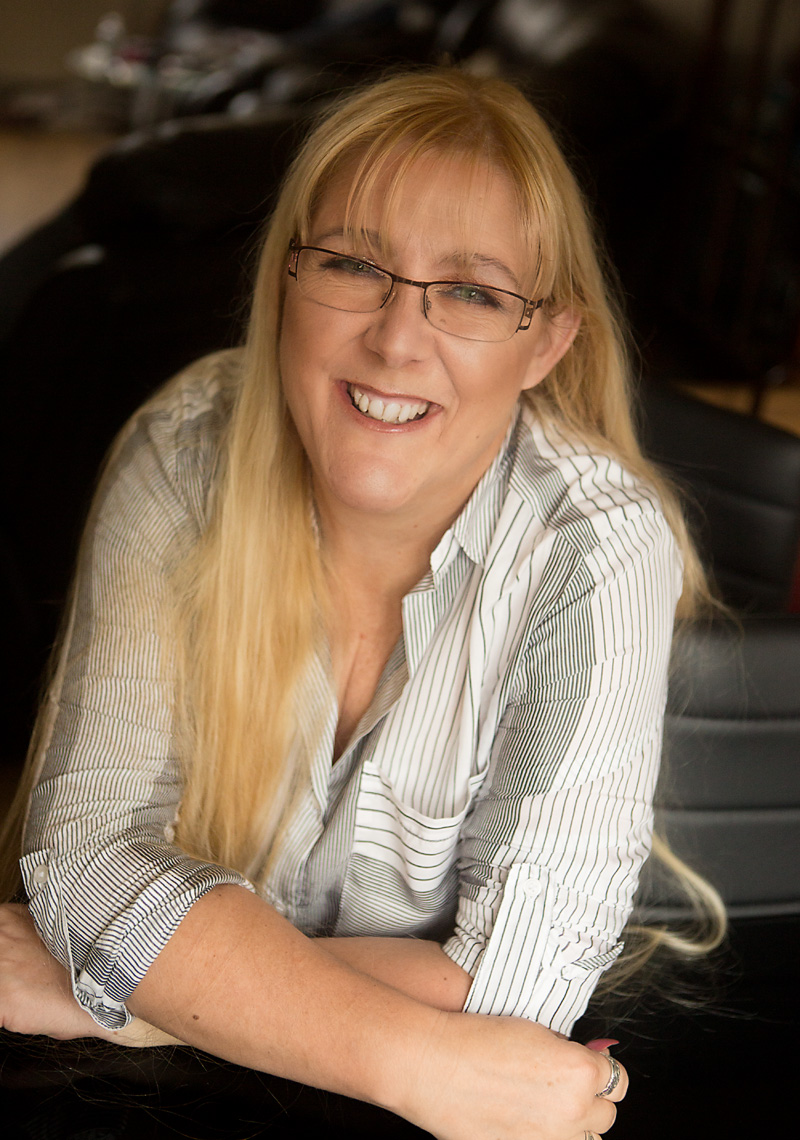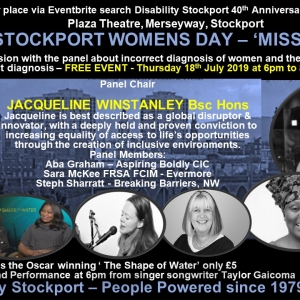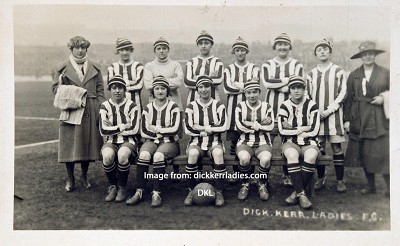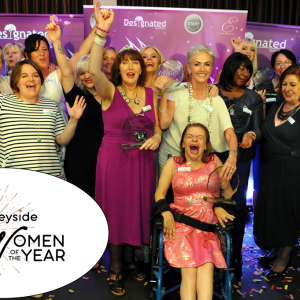"Glamsticks is not just a job or a hobby, it has been my saviour. It is my inspiration to fight each day, even on the days when I am unable to get out of bed; to live life to the full and be truly grateful."
Sharon Farley-Mason
Owner, GlamSticks
www.glamsticks.co.uk
Winner of the APPG for Inclusive Entrepreneurship Recognition Awards 2020 for Outstanding Contribution to Redefining Mobility Aids
Ambassador of the Inclusive Entrepreneurs Network
Highly Commended at Inspire Awards 2019
Finalist at EVA Awards for Solo Business 2018
Finalist at EVA Awards for Solo Business 2017
Winner of @Jacqueline_Gold #WOW Award April 2016
Winner of BrightPig.com "Business Of The Week" Award May 2016
Winner of #Queenof Mobility Aids Award May 2016
Winner of Mobility Product of the Year 2011, and voted Top Ten Best Mobility Product 2011
Jacqueline Winstanley caught up with Lady Sharon Farley-Mason to find out what makes her an inspiring and Inclusive Entrepreneur. Sharon is a member of the Inclusive Entrepreneur community and is being coached and mentored by Jacqueline.
"On the back of Alzheimer's awareness week I was intrigued to hear about the latest addition to your range of Glamsticks. Could you tell us how and why you started GlamSticks so that our readers can understand not only the concept but the person behind GlamSticks".
"On Good Friday 1999, I went out for a ride on my horse. Unfortunately I encountered a nasty accident that almost killed me. After an initial short stay in hospital, I found out that I had ligament damage to my right knee.I wasn't sure of how I would cope - I was using crutches and had a leg splint followed for almost a year after that. Then the hospital advised me that I don't need any surgery, and was told to leave it to heal."
Sharon began to fall over regularly, and this progressively worsened her condition. In 2008, the hospital changed their advice and in 2009 she had an operation to repair her post lacruciate ligament. She had hoped this would give her a new zest for life and her condition would improve, but sadly this was not the case. She left hospital again with her leg strapped up, in a splint and needing crutches. After that, her mobility deteriorated rapidly.
This was certainly not situation she had foreseen. She had a young family to care for as well as a full time job. As her condition worsened, her employers thought it best to medically retire Sharon. Naturally this is not the sort of news one wants to hear at such a young age. Feeling mentally fit, the thought of being ‘disabled’ added a strain to the whole family.
So what led you to Entrepreneurship?
Sharon was drawn to design during a ‘eureka’ moment which happend when she obtained a cover for her mobile phone. Her creative flair took over and she customised the cover with gems and jewels. The finished product was posted on Facebook and she was inundated with requests to make similar ones for family and friends.
At around this time, Sharon also heard about a lady who wished to sell her business due to health reasons. She didn’t hesitate in grasping this opportunity, and GlamSticks traded hands and became her passion. The business grew in a short space of time and gained great accolades from customers.
 GlamSticks is a one stop shop for fab and funky Bespoke Mobility Aids...from crutches, walking sticks and wheel covers to visual aid canes. Whether there is an important business or social function to go to, or a wedding to attend, or just a night out with friends, there is now a mobility aid that adds style and glamour to any outfit! With testmonials pouring in from many delighted clients, GlamSticks is a great success. And this success was also noticed by the industry, and Sharon has been recognised with awards for her unique and bespoke mobility aids. There is also an endorsement by the Blue Badge Style
GlamSticks is a one stop shop for fab and funky Bespoke Mobility Aids...from crutches, walking sticks and wheel covers to visual aid canes. Whether there is an important business or social function to go to, or a wedding to attend, or just a night out with friends, there is now a mobility aid that adds style and glamour to any outfit! With testmonials pouring in from many delighted clients, GlamSticks is a great success. And this success was also noticed by the industry, and Sharon has been recognised with awards for her unique and bespoke mobility aids. There is also an endorsement by the Blue Badge Style
Along Sharon's journey, she was asked to bespoke a running blade in Swarovski crystals. This was a challenge she could not refuse, and the only fully-encrusted in Swarovski crystals running blade in the UK was born - in fact it could well be the only one in the world!
Sharon's passion with gems and jewels means that she can cover anything and make it look stylish and fabulous. With commissions and bespoke items such as shoes and clothing, the range is expanding to fit the growing demand.
Sharon, you are now a member of the Inclusive Entrepreneur Community. How has that helped you in your journey as an entrepreneur?
"I first met Jacqueline through a mutual friend. At that time, I reached out to her as I thought she would be an ideal ambassador for my business. In turn Jacqueline, who is quite passionate about Glamsticks, introduced me to her organisation Universal Inclusion, and the Inclusive Entrepreneurs Community, of which I am now a member.
Jacqueline’s knowledge and assistance have been tremendous - from her advice regarding available support to her handholding throughout the Access to Work Award application. If it hadn't been for Jacqueline's expertise and capabilities, I would have fallen at the first hurdle. Throughout the process, she has kept me calm when my anxieties have been very high. She knows exactly how these awards work and has an amazing way of not letting bureaucracy or conflicting criteria thwart the stated intent of the award to enable disabled people to become successful entrepreneurs in their own right and to be fully supported while doing so.
I have since embarked on the Inclusive Entrepreneur programme as a disabled entrepreneur and Jacqueline is helping me take my business from a small "Cottage Industry" set-up to one that is larger and more visible, much more than it has ever been before."
Your latest venture has so much potential, particularly in terms of supporting people living with Alzhiemers or Dimentia. Can you explain how it works and the difference you think it will make?
Sharon's latest addition to her range of products will add so much to people suffering from restricted mobility associated with Alzhiemers. As she said, "There is so much potential to enhance the quality of life for everyone, particularly in terms of supporting "Alzheimer's Society, United Against Dementia". Whether restricted mobility (initial) dementia or disorientation, the item will serve as a faithful companion in everyday life and as a lifeguard in an emergency. This new item works with your computer or phone and could change lives."
If you would like to contact Sharon, you can email her on This email address is being protected from spambots. You need JavaScript enabled to view it. or call her on +44 (0)7903 143 322. You can also follow her on social media:
Twitter: https://twitter.com/Glamsticks
Facebook: https://www.facebook.com/GlamSticks
Instagram: https://www.instagram.com/sharonfm1_glamsticks/




 Jacqueline Winstanley leads a panel discussion on women's health issues on Thursday 18 July between 6pm to 9pm during the WOMEN & DISABILITY EVENING.
Jacqueline Winstanley leads a panel discussion on women's health issues on Thursday 18 July between 6pm to 9pm during the WOMEN & DISABILITY EVENING. 



 I was lucky enough to interview the Campaign Manager at the Club, Karen Dobres for a @FiLiA Podcast (
I was lucky enough to interview the Campaign Manager at the Club, Karen Dobres for a @FiLiA Podcast (
